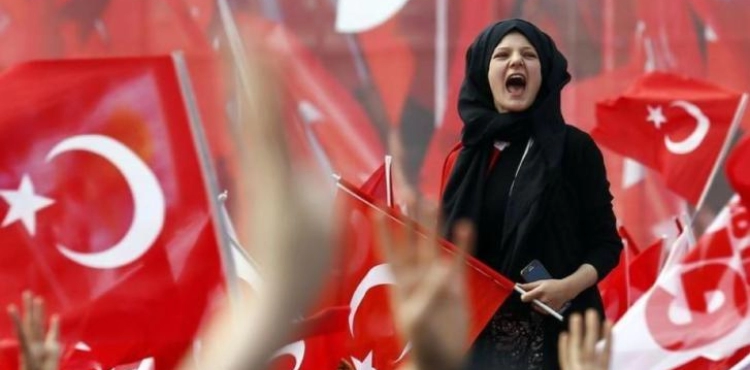Inal Kaya, one of the most vocal supporters of Recep Tayyip Erdogan, did not vote in the municipal elections in March. But when he learned that the president´s candidate had lost in Istanbul, he regretted and was now determined to participate in the run-off.
Inal, a vegetable vendor in the conservative district of Al Fateh, will be able to make up for that Sunday in Istanbul´s new municipal elections after the cancellation of the first disputed election.
"He´s going to go this time for sure," says Inal, as he stuffs some vegetables.
Erdogan´s conservative Justice and Development Party (AKP) began mobilizing voters a few days before the election, fearing they would not participate and cause the loss of Turkey´s economic capital, as happened on March 31, when its candidate, former Prime Minister Ben Ali Yildirim, lost 13,000 votes to opposition candidate Akram Emamoglu. A difference in a city of 16 million people. So every vote is important.
"I´m fed up with all this number of elections," says Inal, eight times in five years, and because he thought the victory was decided by Leldirim.
Others abstained as a sign of dissatisfaction with the economic recession and rising inflation and unemployment.
More than 400,000 supporters of the Justice and Development Party (AKP) have been reluctant to take part in March, according to the close-in-chief journalist Abdelkader Silvi.
To mobilize its supporters, the party adopted a "special approach", according to Sylvie, to "contact the angry voters one by one and hold individual meetings with them."
Given his resentment among some of his supporters, Erdogan said this week that "we can be angry with some individuals, but not against the issue."
Koksal Dimir, a retired resident of Istanbul´s popular district of Kassem Pasha, admits that Erdogan has "economic problems" but that does not justify the AK Party´s abstention from voting or giving their votes to the opposition.
"He is the only candidate who can solve these problems," he says.
Like most supporters of the Justice and Development Party (AKP), Koksal praises the former prime minister and improved living standards in Turkey since the party took power in 2002, citing the construction of many bridges, tunnels and hospitals.
In its campaign, the AKP focuses mainly on these achievements by saying: "We have done it and will do it again."
But even if the Justice and Development Party (AKP) is able to foment enthusiasm among its reluctant supporters, it may not be able to close the gap, especially as the opposition is also mobilizing and mobilizing abstainers.
Therefore, the AKP is trying to "employ all its potential and electoral resources," according to Jean-Marcou, a co-researcher at the Institut Français d´Anatolique, referring to conservative Kurds and young people.
Both camps are competing to win the support of Kurdish voters in particular. Although the Democratic Peoples Party, the main pro-Kurdish party, has confirmed its support for Imam Oglu, the AKP has been trying to foment these voters for several weeks.
For the first time since 2011, the authorities allowed the lawyer of the outlawed Kurdistan Workers Party (PKK) leader Abdullah Ocalan to visit him several times in prison.
The AKP, fearing it could provoke the cancellation of Istanbul municipal elections after the opposition won, has angered some of its constituents.
However, Professor Emre ErdoÄŸan of Bilgi University in Istanbul says there is little chance that those who elected Yildirim will change their choice in the new vote. "
"The polarization in the country reflects the way people look at the facts," he said, "if supporters of Imamoglu see the decision as unfair, Yildirim´s supporters believe that the vote does not reflect the reality and that the elections should have been canceled.
This is the case of Kaya, who says that the opposition did "strange things" and committed "fraud", asserting that "the real result will appear Sunday."












